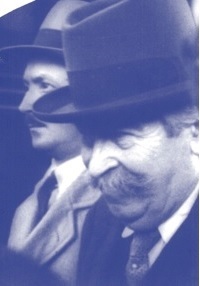Aristide Briand speech to the Assembly of the League of Nations
Geneva, Room Reformation, 5 September 1929
Extract
[…]My colleague and friend M. Hymans, in his fine speech, addressed another sensitive issue which the League of Nations was seized and about which she met an excellent and very interesting documentation. This is the problem of economic disarmament; because there is not only to prevail among peoples peace policy perspective, must also reign economic peace.
Mrs. Hymans proposed some solutions, for my part, I will consider sympathetically. But, I may be allowed to say, in this area also, requires that the League of Nations decided to move forward with firm steps. Should not it addresses these issues with shyness that he could inspire the difficulties of the task.
I do not think the solution to such a problem – I mean a real solution, that is to say, to ensure the economic peace – pure by means of technical. While, we must have recourse to technical advice; must surround themselves with and respect; must be willing to work on the basis of a serious and solid documentation. But if we remettions only to technicians to address those problems, we should all years, each Assembly, resign ourselves to make beautiful speeches and recording with many bitter disappointments.
It is provided to seize themselves of the problem and consider politically that governments manage to solve. If it remains technically, all interests we will stand, se coaliser, s’opposer: there will be no general solution.
Here, with some concern, I can say with some trepidation, who instilled in me a shyness that you want to excuse me, I address another problem. I joined in recent years in an active propaganda in favor of an idea that was good enough to qualify for generous, perhaps dispense with the call of reckless. This idea, who was born there many years, that has haunted the imagination of philosophers and poets, which earned them what may be called the critical success, this idea grew in the minds of his own value. She eventually appear as meeting a need. Propagandists have come together to spread the, make it go further into the minds of nations, and I confess that I found myself among these propagandists.
However, I did not hide me without difficulties of such an undertaking, nor without receiving the disadvantage that there may be a statesman to engage in what we readily call such an adventure. But I think, in all acts of man, even the most important and wisest, there is always some craziness or recklessness. Then, I gave me absolution in advance and I made a step forward. I have done with caution. I realize that improvisation is terrible and I do not conceal from myself that the problem may be a little out of the program of the League of Nations; it is however currently connected, because since the Covenant, the Company has never ceased to advocate the reconciliation of peoples and regional unions, even more extensive.
I think between peoples who are geographically grouped as the peoples of Europe, there must be some sort of federal link; these peoples shall have the opportunity at any time to contact, discuss their interests, take joint resolutions, to establish between them a bond of solidarity, to enable them to cope, timely, in serious circumstances, should they arise.
It is this link that I would endeavor to establish.
Obviously, Association will especially in the economic field: this is the most pressing issue. I think we can get success. But I am also sure that politically, social point of view, the federal bond, without affecting the sovereignty of any nation that could be part of such an association, may be beneficial, and I propose, during the duration of the session, pray those of my colleagues who are here European nations kindly consider this suggestion and unofficial offer to study their governments, to clear later, during the next session of the Assembly may, the possibilities of realization that I think I see.
[…]
Proceedings of the Tenth Ordinary Session of the Assembly, Sixth Plenary Session, Thursday 5 September 1929, p. 51-52.


